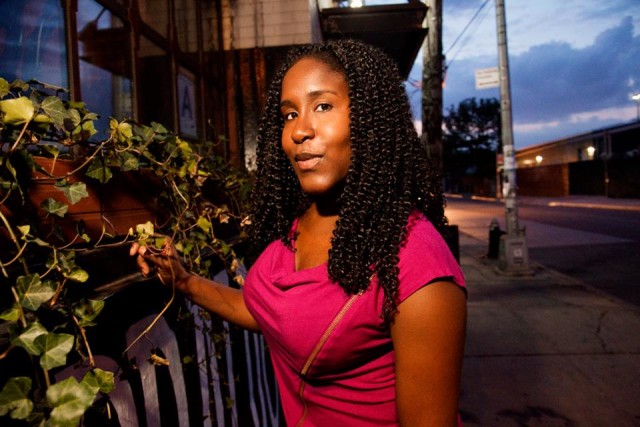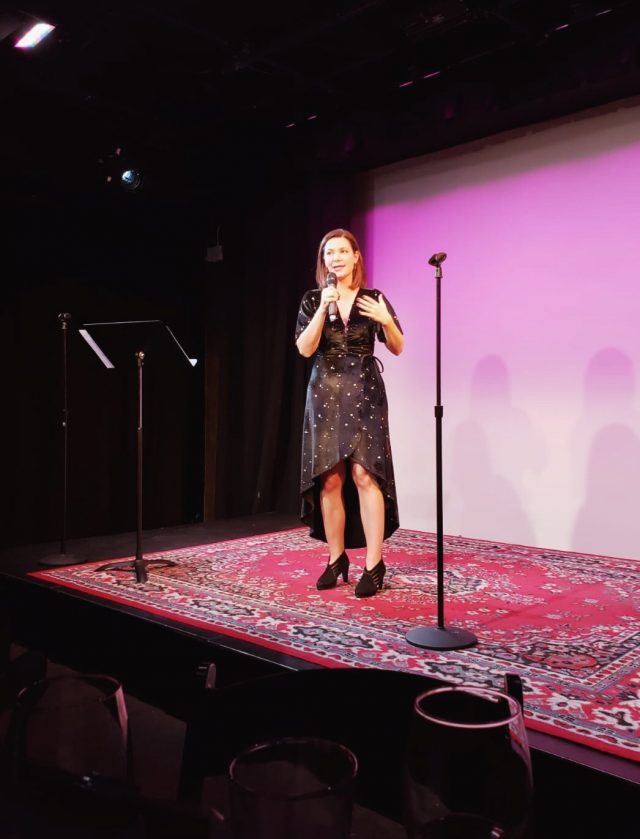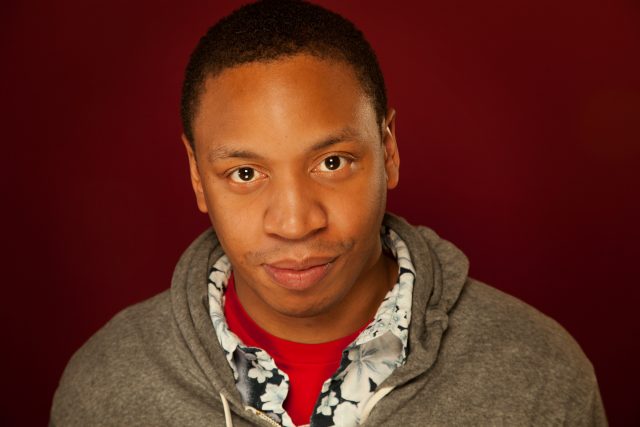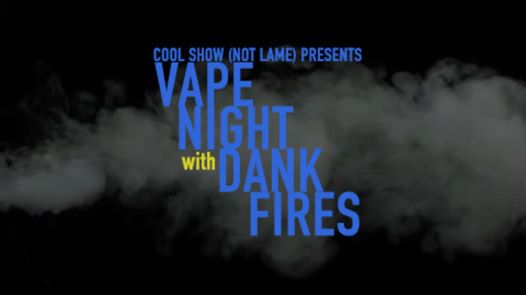
Rejoice, friends, because Broad City Day is now officially upon us! As many of you can attest, it’s been too long without Ilana and Abbi (whose new season debuts tonight at 10pm on Comedy Central) but behind every good pair of women on TV is a whole crew that works tirelessly to bring you all your memes and gifs for the coming year. And in celebration, we spoke to Naomi Ekperigin, a staff writer on the show and your new comedy crush.
Naomi’s been involved in Broad City since Season 1, when she began there as a writers’ assistant. She was promoted to staff writer for Season 2 and worked on this upcoming season, but as eager as we are for the new season, she’s not sharing any surprises. Superfans of the show may also know her from the touring show Broad City Live, where she opened for Abbi and Ilana. Since and in-between, she also worked on Julie Klausner and Billy Eichner’s Difficult People, and most recently began developing a pilot she’ll be hosting for TruTV, Inside Caucasia. Catch her performing around the city and cohosting her own monthly show In Stereo at HiFi Bar in the East Village. The show has comedian duos (friends, couples, writing partners) perform together, giving audiences a glimpse of both bits and real relationships. We talked with Naomi about how she got her sweet gigs and the best uses for drink tickets (other than for drinks).
Whether it’s showing up on Adam Ruins Everything, writing for multiple hilarious, acclaimed shows, or hosting comedy benefit shows at the Bell House, I feel like you’re living out my current vision board. How did you get started in comedy?
My introduction to performing comedy was in college, doing improv. We did scenes off of a monologue, and telling that monologue was definitely my introduction to the idea that I might want to stand up. I was also in a bunch of plays in college and my first job after graduation was an actor with The National Theater of the Deaf, so I was very comfortable on stage by the time I started doing stand up. What I really had to learn in the beginning was how to turn the funny, meandering stories I had into tight sets, five, eight, 10, 15 minutes in length.
That’s actually how I got involved in stand up and performing. Not acting with the National Theater of the Deaf, the improv and monologues part. How did writing for television come into the picture? Was it always part of the plan?
I was a film and English major, and my thesis was a feature-length screenplay, so I always wanted to write, and worked on my own things from an early age. I loved watching TV and always wanted to be on it, and figured the best shot I had was to try and make it. Now, how to get into the industry that enables that to happen … I had no frackin’ clue. But I knew that I could be a stand-up if I got stage time to tell jokes. That immediacy is what made stand-up my primary focus from then on.
That’s surprisingly lucid as a game plan, and I’m speaking as someone with similar goals who took much longer to figure out that path. What tips would you give to younger me, and all the other writers out there trying to get into the writers’ room of Broad City or—god help us—The Big Bang Theory?
If you want to be a staff writer on a television show, you have to have an original pilot script. If you want to work on a half-hour comedy it should be a half-hour comedy script; if you want to be on a drama, it should be a drama script. That sample should reflect your voice as a writer — what you find funny/interesting — and your ability to follow proper television format.
The most important thing to do nowadays is hone your voice: create whatever gets you going, whether it’s in the form of a webseries, McSweeney’s articles, stand-up or live sketches. Your goal is making your voice as clearly understood as possible. I don’t think that means “selling out.” I think it means you create work that anyone can see and say, “I know what this is about,” which makes it easier for someone with cash flow to say, “I know how I can employ this.”
Aside from being a writer, though, you’re a pretty prolific performer and stand up. What are your favorite places to perform in NY?
I love intimate spaces. HiFi bar, where I co-host the monthly show In Stereo, is one of my favorite spots. I really like performing at UCB theaters. The crowd is smart, ready to laugh, and aren’t bitter because they haven’t had to buy two drinks. I’m also really about Phoebe Robinson and Jessica Williams’ 2 Dope Queens show at Union Hall ‘cause they bring in a smart, multi-culti crowd.
How would you characterize the NYC comedy scene for people who haven’t discovered it yet?
I think the NYC comedy scene is all about being yourself, even if it’s idiosyncratic and weird and awkward. There are so many venues, and an explosion of alt rooms that welcome non-traditional stand up. I think that partially has to do with Twitter. There’s now a space dedicated to one-liners, so I feel like the stage is for performing, not just standing still and reciting what’s basically a collection of tweets. Audiences in NYC want to feel connected with the performer, not like they’re being talked at.
Even though you live in Harlem, I assume that as a writer and a comedian the ethos of Brokelyn is near and dear to your heart. So what’s your big splurge item?
Food. NYC has so many options and I’m usually out of the house during dinner time, so I can’t help but buy meals. I love this Vietnamese place called Saigon Shack in the West Village. It’s always packed so I usually get it to go. I also love Meatball Shop. They’re both open late so after shows I like to stop there. As for Brooklyn spots, Calexico is my favorite and if I’m near one, I will go out of my way for their crack sauce. If only I could pay for food with drink tickets!
That’s right, you don’t drink. That must be annoying when that’s sometimes the only payment you get for doing a show.
I’m basically hoarding these little slips of paper (‘cause most bartenders won’t accept one for a seltzer. Apparently, sodas aren’t real beverages). I feel like I should make a scrapbook of drink tickets —some places have really pretty ones. I like the wooden coins Videology gives. If I was a hip, Brooklyn, Etsy kind of girl I’d make them into earrings. My cats just bat them around the floor, though.
[Full disclosure: The author and the subject of this post are comedy buddies. You can catch Naomi at the show Eric cohosts with Joe Stanton, Dear God That’s Stone Cold’s Music, at Bunga’s Den on Feb. 24.]
Check out Naomi at the next In Stereo, on the third Tuesday of the month at HiFi, and follow her on Twitter: @Blacktress.
Follow Eric as he tries to get a job on the Big Bang Theory: @Primesilver.
Want more on the local comedy scene? Check out our guide to free/cheap comedy in Brooklyn!
Leave a Reply



